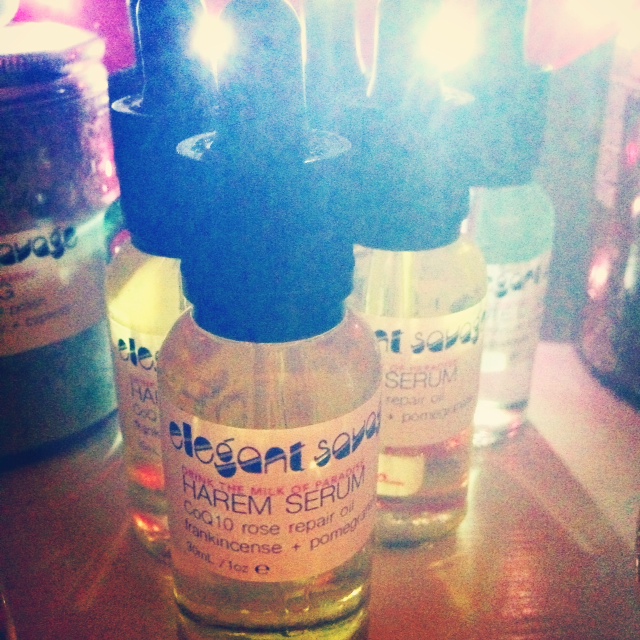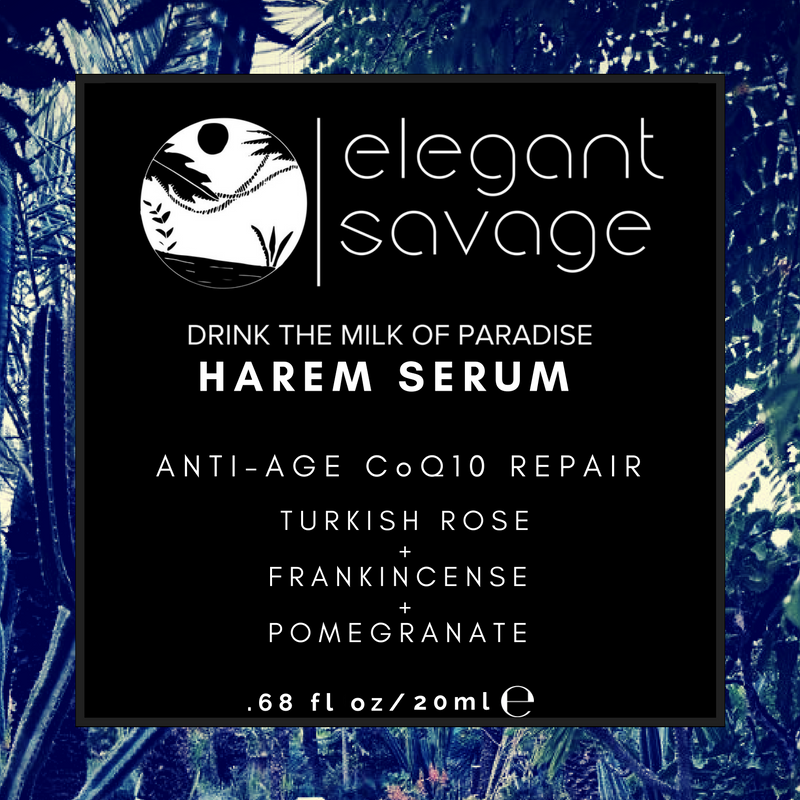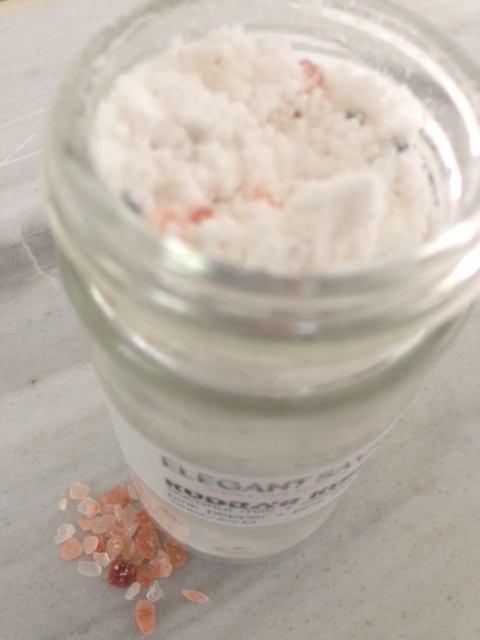Tribal Beauty of Ancient Egypt
The Egyptians regarded beauty as a sign of holiness and believed in the magical properties of their beauty ritual ingredients.
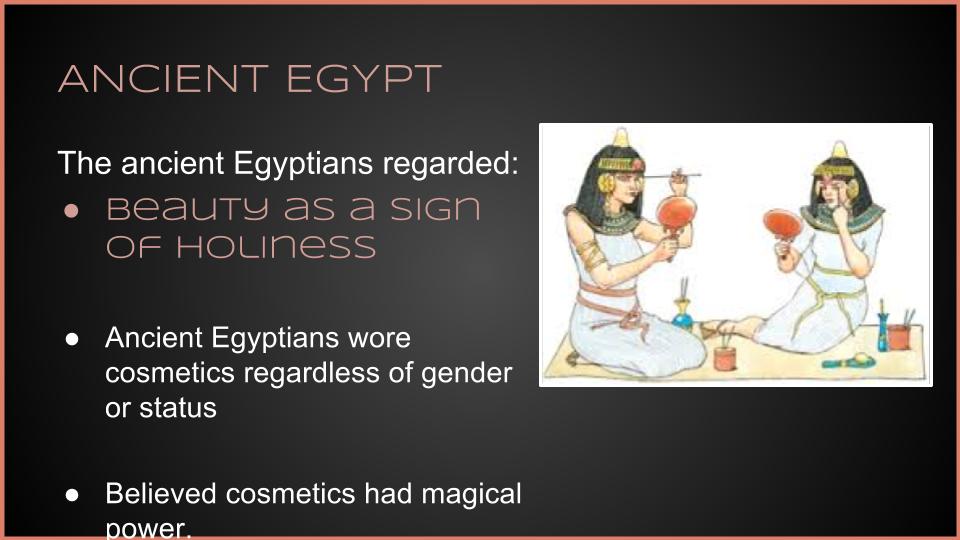
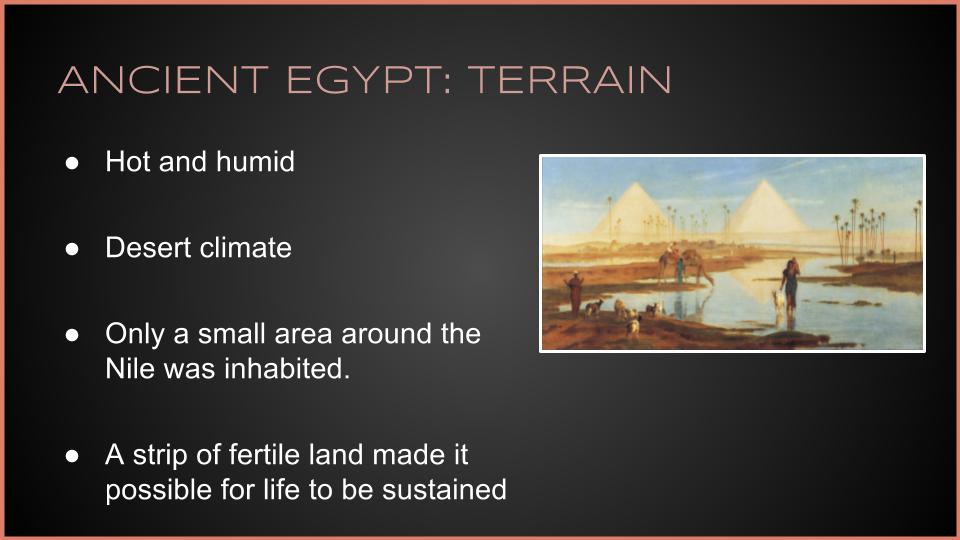
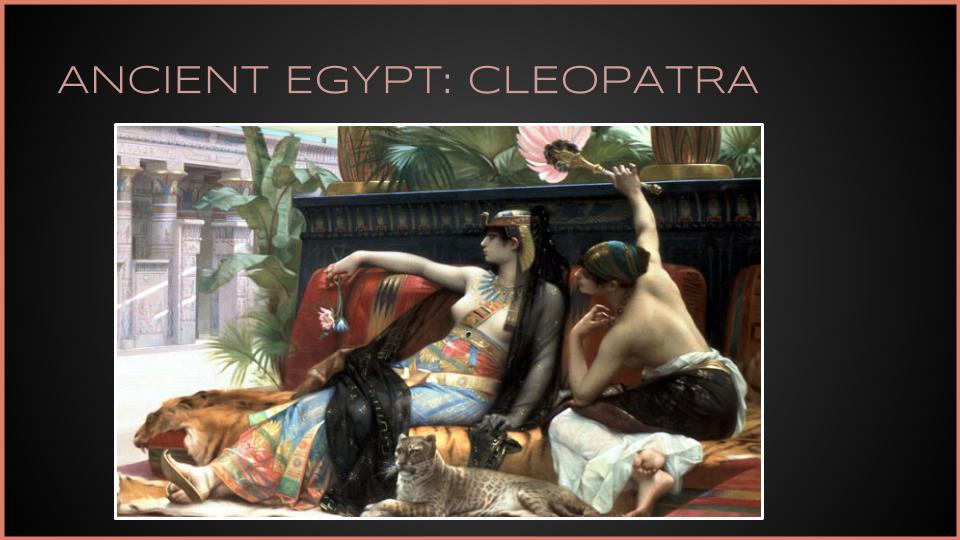
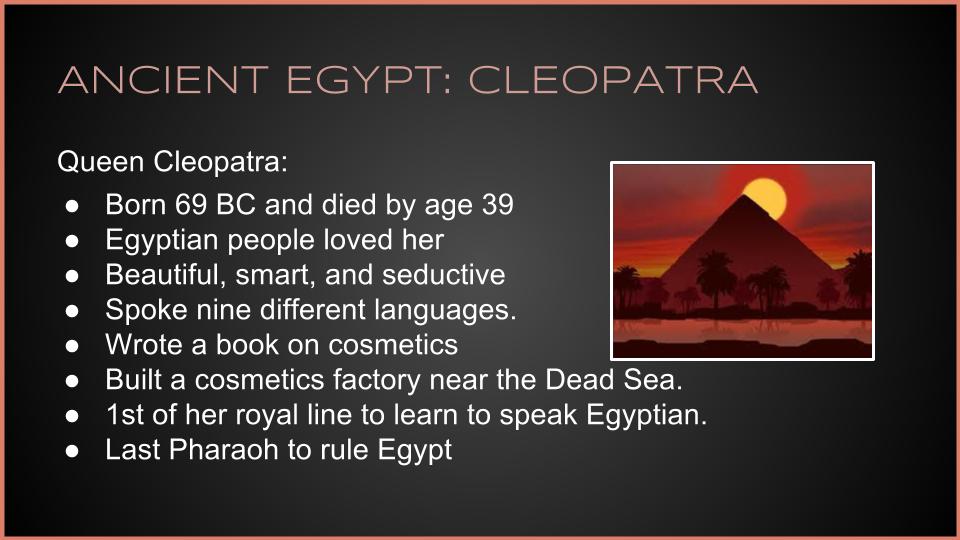
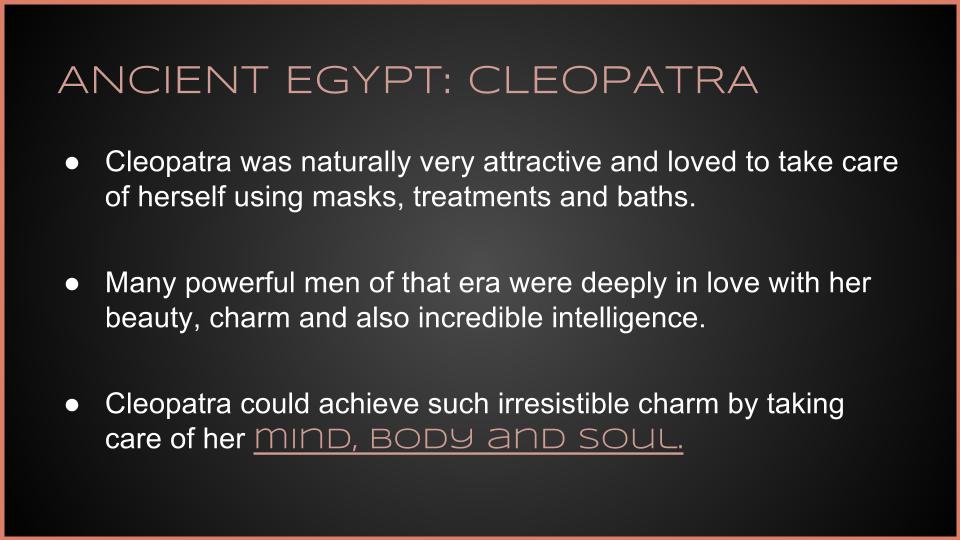
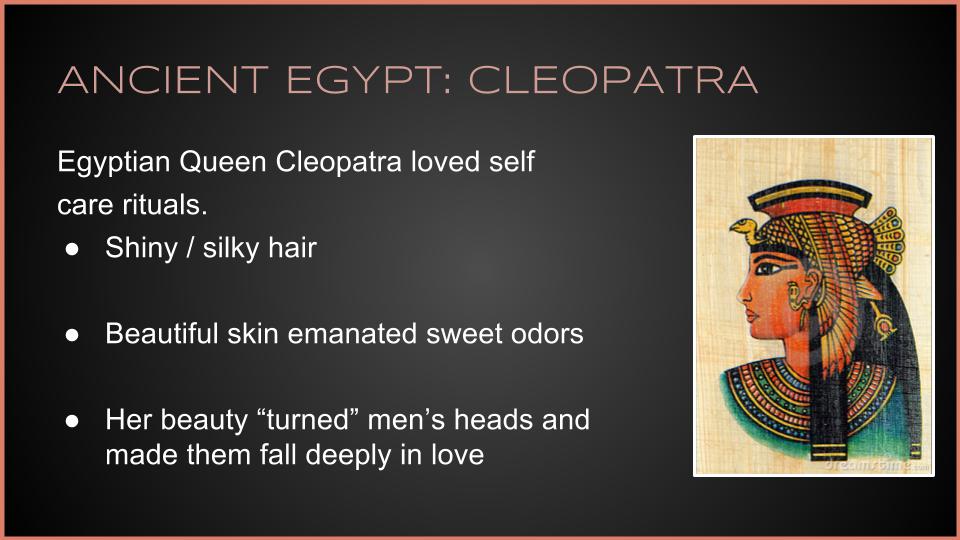
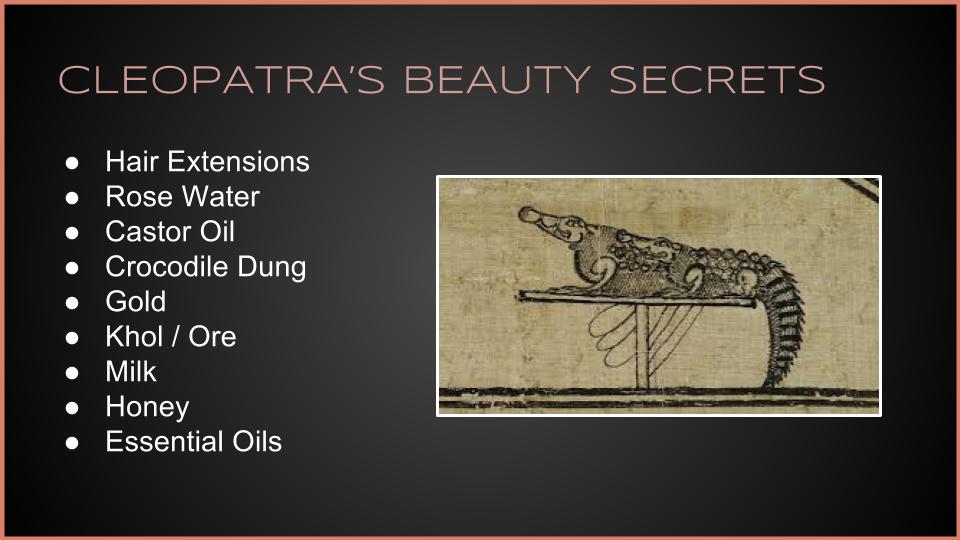
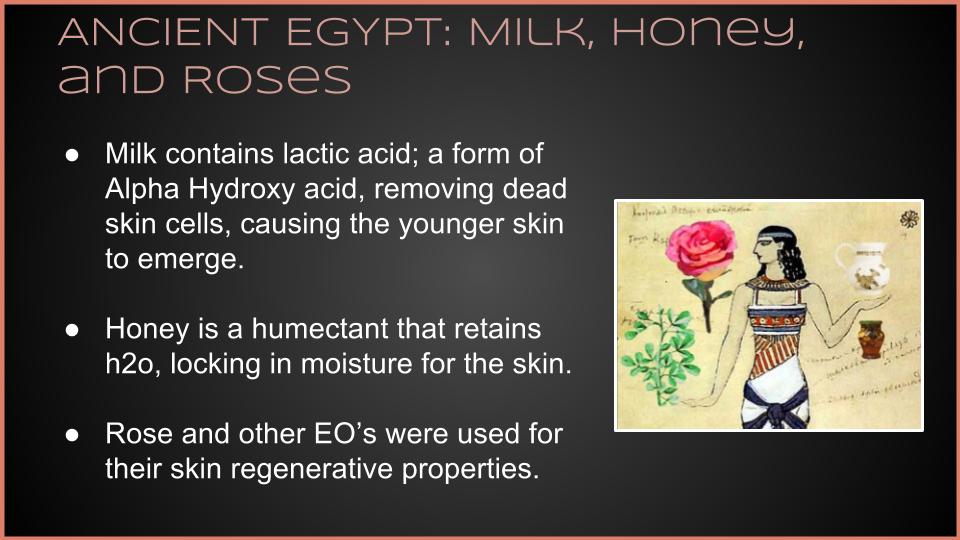
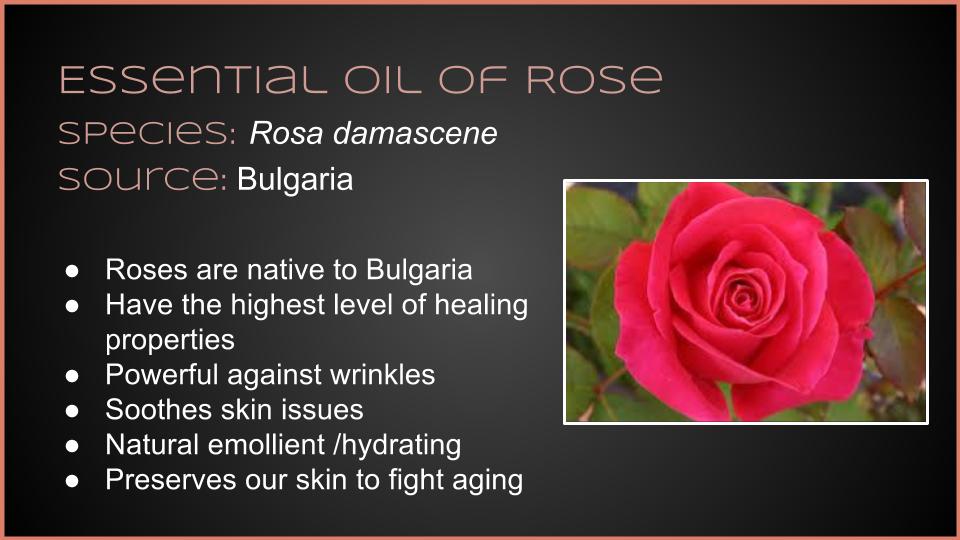
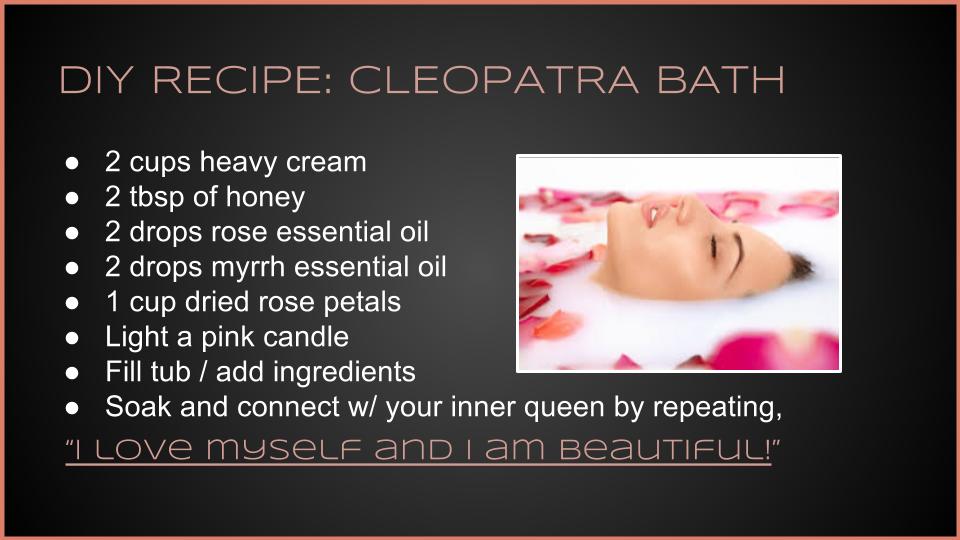
Ancient Egyptians not only used the precious metal of gold as adornment, but also used gold as a therapy for the skin. Historically in Egypt, gold was used for its curative and antibacterial properties. The exclusiveness of this ritual has not changed throughout the years, as only a certain number of elite spa’s around the world offer the expertise in using this expensive metal for skin and energy revitalizing purposes.
The ancient Egyptians were not entirely misguided in believing that kohl would prevent eye infections because it actually did prevent an ocular infection that was caused by the flooding of the Nile. The lead-based substances in the kohl promoted the production of nitric oxide in their skin, which helped strengthen their immune systems against diseases ("How the Pharaohs Fought Ocular Infection"). The soot in kohl helped in reducing the damaging effects of sun glare on their eyes. The ancient Egyptians created a remedy for burns by mixing the cheek and lip stain and other remedies for improving skin with red natron, northern salt and honey. However, the ancient Egyptians strongly believed that the healing effects of these cosmetics were magical rather than medical.
The beauty technique, known as hair extensions was widely used in ancient Egyptian history, followed the Egyptians predecessors to their grave. Hair is something that ancient Egyptians went great lengths to nurture and enhance. Hair symbolized wealth, status, beauty and in some references, motherhood and fertility. To maintain natural hair growth and the strength of their hair, Egyptians were pioneers in using castor oil. Ancient Egyptians initiated the use of this oil for their hair due to its nourishing properties. Castor oil has since then been used to enhance healthy hair growth and in strengthening hair follicles.
One can not help but think of the legendary queen Cleopatra of Ancient Egypt known throughout history for her beauty and charm.
Her father was exiled and so she took the thrown at 18 ruling w/ her brother who was 10. A woman was allowed to rule but not alone. She then decided to remove her brothers name from all of the records and print only her face on the coins. She was 1st women to rule Egypt solo. Eventually she needed a partner to possy up with and form a stronger position in ruling so she seduced Julius Ceasar for political reasons, showing up for the first time at his palace rolled in a rug then rolled out to surprise him. She and Ceasar had a son heir to throne. After Ceasar died she formed an alliance w/ Mark Anthony, her great love and had three more children. Sadly, she died by age 39 taking poison but beauty and intellect have never been forgotten.
Born 69 BC and died by age 39
Egyptian people loved her
Beautiful, smart, and seductive
Spoke nine different languages.
Wrote a book on cosmetics
Built a cosmetics factory near the Dead Sea.
1st of her royal line to learn to speak Egyptian.
Last Pharaoh to rule Egypt
Cleopatra knew that physical beauty can attract the eye (this is why she took such a good care of her skin and body), intellect can help become an interesting and skillful communicator (this is why Cleopatra loved to read books, learn new things and grow mentally), but she also knew about one invisible, yet important ingredient of feminine beauty – charm; she knew that, if you want to be irresistible and truly beautiful, it’s important to cultivate the inner confidence and inner charm of a true lady!
Milk and Honey was the backbone combination for a multitude of Cleopatra’s ancient skin care regimes. Because of the dry climate and the risk of premature aging due to cell dehydration Cleopatra knew the value of locking in the moisture to her skin. Rose was another favorite due to it's regenerating effects. Though rose also native to Turkey which is closer to Egypt, Cleopatra would have imported her species of rose from bulgaria if she wanted the highest grade and I am sure she did! Her roots were also Greek and Greece borders Bulgaria. so Bulgarian rose was most likely an accustomed luxury.!
Roses are native to Bulgaria
Have the highest level of healing properties
Powerful against wrinkles
Soothes skin issues
Natural emollient /hydrating
- Preserves our skin to fight aging
So in honor of being a skin care enthusiast like this queen who loved to nourish her body, mind, and soul celebrate your own beauty by indulging in a luxurious Cleopatra Bath of milk, honey, and roses. Milk contains lactic acid; a form of Alpha Hydroxy acid, removing dead skin cells, causing the younger skin to emerge. Honey is a humectant that retains h2o, locking in moisture for the skin. Indulge in Rose which resonates a love frequency.
Elegant Savage also inspires a rose infused, skin regenerating "Harem Serum" w/ ingredients that was celebrated back in ancient Egypt. Combine w/ "Kudra's Kiss, our coconut milk bath soak to for the vegan version on Cleo's bath! Enjoy!


